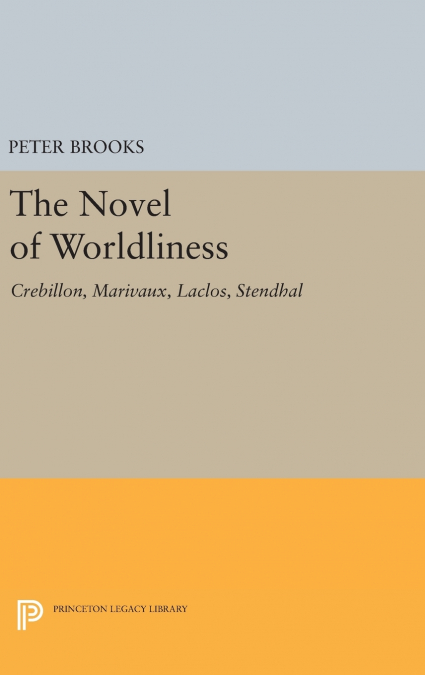
 Librería Perelló (Valencia)
Librería Perelló (Valencia)
 Librería Aciertas (Toledo)
Librería Aciertas (Toledo)
 El AlmaZen del Alquimista (Sevilla)
El AlmaZen del Alquimista (Sevilla)
 Librería Elías (Asturias)
Librería Elías (Asturias)
 Librería Kolima (Madrid)
Librería Kolima (Madrid)
 Donde los libros
Donde los libros
 Librería Proteo (Málaga)
Librería Proteo (Málaga)
Contending that a search for 'realism' distorts the writing of Crébillon, Marivaux, Laclos, and Stendahl, Peter Brooks considers their novels with reference to the manner in which the characters explore their worth and pursue their own systems of relationships. The novels discussed are used as examples of the fictional exploitation of the drama inherent in man’s social existence and the encounters of personal styles within the framework and code provided by a coterie which is an object of conscious cultivation for its own sake. The author gives detailed readings of the four authors’ works and moves backward to consider the seventeenth-century moralistes and the drawing rooms in which literary forms applied to social man were eloquently elaborated.Originally published in 1969.The Princeton Legacy Library uses the latest print-on-demand technology to again make available previously out-of-print books from the distinguished backlist of Princeton University Press. These editions preserve the original texts of these important books while presenting them in durable paperback and hardcover editions. The goal of the Princeton Legacy Library is to vastly increase access to the rich scholarly heritage found in the thousands of books published by Princeton University Press since its founding in 1905.